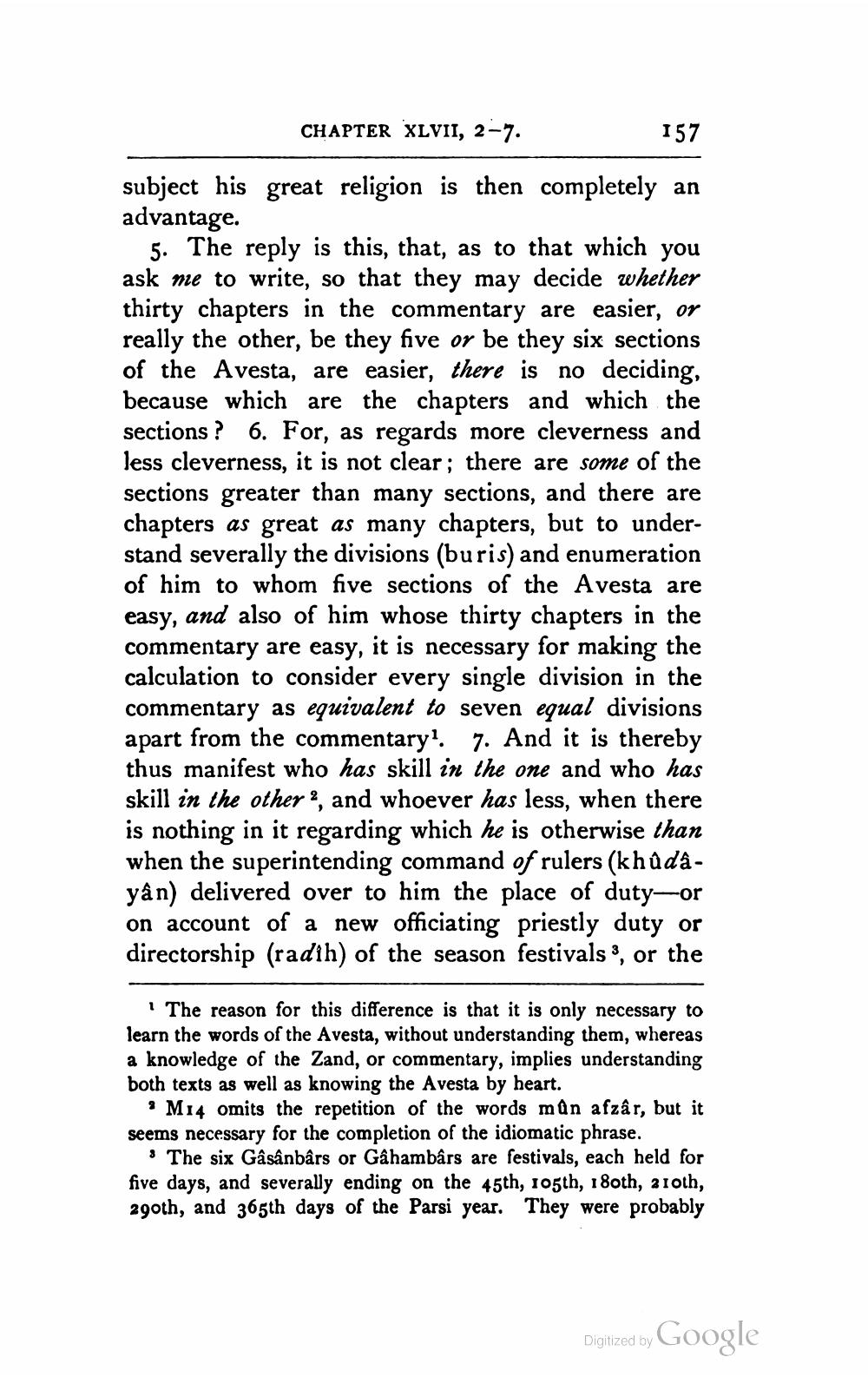________________
CHAPTER XLVII, 2–7.
157
subject his great religion is then completely an advantage.
5. The reply is this, that, as to that which you ask me to write, so that they may decide whether thirty chapters in the commentary are easier, or really the other, be they five or be they six sections of the Avesta, are easier, there is no deciding, because which are the chapters and which the sections ? 6. For, as regards more cleverness and less cleverness, it is not clear; there are some of the sections greater than many sections, and there are chapters as great as many chapters, but to understand severally the divisions (buris) and enumeration of him to whom five sections of the Avesta are easy, and also of him whose thirty chapters in the commentary are easy, it is necessary for making the calculation to consider every single division in the commentary as equivalent to seven equal divisions apart from the commentary? 7. And it is thereby thus manifest who has skill in the one and who has skill in the other ?, and whoever has less, when there is nothing in it regarding which he is otherwise than when the superintending command of rulers (khûdayan) delivered over to him the place of duty—or on account of a new officiating priestly duty or directorship (radih) of the season festivals 3, or the
1 The reason for this difference is that it is only necessary to learn the words of the Avesta, without understanding them, whereas a knowledge of the Zand, or commentary, implies understanding both texts as well as knowing the Avesta by heart.
* M14 omits the repetition of the words man afzâr, but it seems necessary for the completion of the idiomatic phrase
The six Gâsânbars or Gâhambârs are festivals, each held for five days, and severally ending on the 45th, 105th, 180th, 210th, 290th, and 365th days of the Parsi year. They were probably
Digitized by Google




